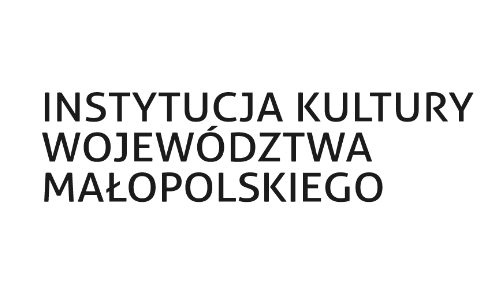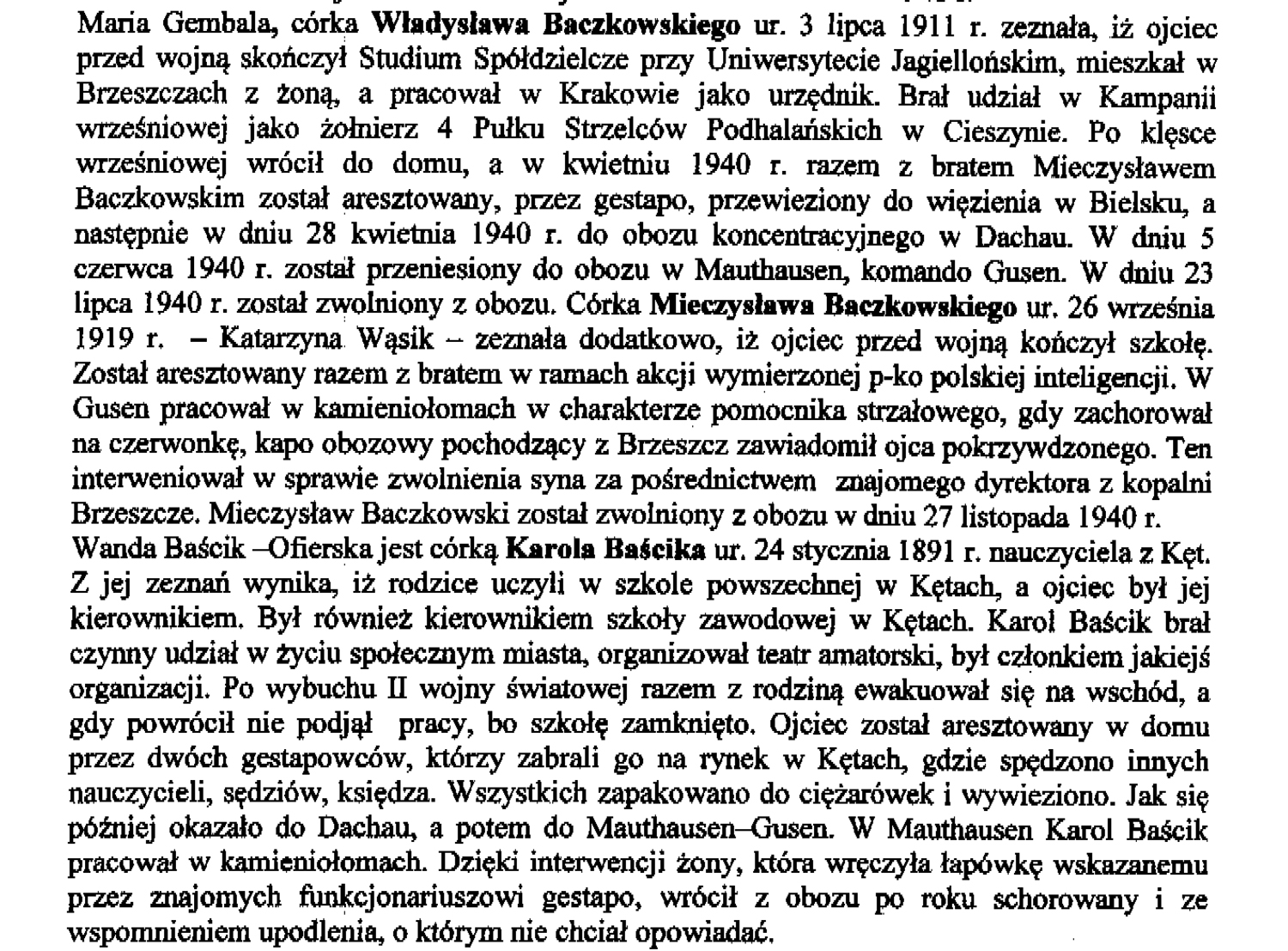[vc_row][vc_column][vc_column_text]The 23rd April 2020 marked 80 years since the arrest of almost 30 Kęty teachers by the Germans. Many of them were subsequently killed in concentration camps.
Władysław Droździk in Almanach Kęckiego nr 1 from 1997 described the event as follows: “The arrests of the teachers were carried out in the Katowice district in April and May 1940. In the Kęty region, they took place on 23rd April. It was a well-known AB act. ((Ausserordentliche Befriedungsaktion[1]). According to witness statements at the time, 27 people were taken to the camps. Marian Zieliński in a note … at my request 12th December 1970, wrote Many of the arrested were in the gymnasium of the current Liceum Pedagogniczne. I was immediately taken to the police station. I remember how 27 of us were taken from Kęty and surrounding area to cars. After the investigation at the Gestapo offices, the arrested were placed in the COHNA factory in Cieszyn and then sent to Dachau and later to Mauthausen-Gusen.”
In the light of documents known today, in particular the decision by the IPN (The Institute of National Remembrance) in 2014 in relation to the amortization (discontinuation) of administrative proceedings regarding war crimes -crimes against humanity – carried out by representatives of the German authorities in the Katowice district in April and May 1940, it may be assumed that the arrests were not carried out as an AB, rather they were a so-called Intelligenzaktion[2] carried out against Polish intelligentsia.
There is no doubt that the teaching community in Kęty suffered great losses as a result of actions undertaken by the occupying forces. As the above mentioned Władysław Droździk says “27 teachers from the Bialski district were killed in the Mauthausen-Gusen concentration camp, of whom 17 were from the Kęty area, 7 from the Wadowice area and 3 from the Żywiec area.”
During the Intelligenzaktion, the Germans also arrested members of the Intelligenstia from neighbouring towns such as Brzeszcze and then sent them to concentration camps.
…
Fragment of the Institute of National Remembrance document from 2014 containing information about the Intelligenzaktion as well as information about the fates of Mieczysław Baczkowski and Władysław Baczkowski from Brzeszcze as well as Kęty school headteacher Karol Baścik who were arrested by the Germans.
[1] The AB-Aktion (German: Außerordentliche Befriedungsaktion, English: Extraordinary Operation of Pacification), was a second stage of the Nazi German campaign of violence during World War II aimed to eliminate the intellectuals and the upper classes of the Second Polish Republic across the territories slated for eventual annexation. (https://en.wikipedia.org/wiki/German_AB-Aktion_in_Poland)
[2] The Intelligenzaktion (German pronunciation: [ɪntɛliˈɡɛnt͡s.akˌt͡sjoːn]), or Intelligentsia mass shootings, was a, not always secret, mass murder conducted by Nazi Germany against the Polish intelligentsia (teachers, priests, physicians, et al.) early in the Second World War (1939–45). The operations were conducted to realise the Germanization of the western regions of occupied Poland, before territorial annexation to the German Reich. (https://en.wikipedia.org/wiki/Intelligenzaktion)
[/vc_column_text][vc_empty_space][vc_single_image image=”1458″ img_size=”full” add_caption=”yes”][/vc_column][/vc_row]






